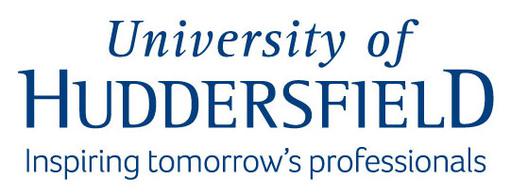Others courses
University of Huddersfield

Duration : 3 Years
Intake : Sep
IELTS : 6.0
TOEFL : 0
PTE : 51
University Course Details URL : Visit Website
Level : Undergraduate
Tuition & fees : £ 0 Per Year
University of Huddersfield Contact Details
1 Pace Plaza, New York, NY, 10038, USA
Email: intlgradadmission@pace.edu
Phone: +18667223338
About Policing And Investigation Bsc(hons) in University of Huddersfield
The growth in policing and investigation as an area of criminal justice work is now broader than just the police service. This course could give you the skills and knowledge you need for a future career working in organisations who engage with and in policing and investigatory activities, including but not limited to international police services, Local Councils, private and voluntary sector organisations.
This course is not accredited through the College of Policing. This is an academic course exploring issues relating to the nature and conduct of policing and investigating crime, and is not a ‘pre-join degree’ programme. If you're interested in one of the entry routes into policing,
This course will enable you to:
- Critically study the range of formal and informal responses to the prevention, detection and investigation of criminal and anti-social behaviours.
- Explore the different ways of understanding the work of the police and other policing and investigative agencies nationally, cross-nationally and internationally, as well as comparatively with other models of policing.
- Consider the nature and function of policing, crime prevention and investigative work within the context of social control and order, and the relationship of such work to the state and to the general public.
- Understand theories of criminal behaviour, strategies and theories of policing, preventing and investigating crime, accountability and legitimacy, evidence-based research and crime data analysis that can inform policing and the conduct of investigations.
- Investigate key areas of particular challenge such as risk, security and terrorism, serious crime, international and borderless crime.
-
You’ll be taught by tutors who have a wide range of research specialisms and knowledge of the issues involved in policing and investigation today. They’ll give you an insight into key contemporary debates and concerns, as well as what it’s like working in policing and investigation sectors.
You’ll benefit from guest lecturers and tutors who have worked in positions such as police officers, crime analysts, crime scene investigators, fraud investigators, as well as in the office of the police crime commissioner, Local Authority and many more. They’ll use their expertise to give you practical examples of the work you could end up doing.
In your second year you’ll complete a compulsory work placement. Previous criminology students have worked with the police, youth offending teams, in prisons, restorative justice organisations, CCTV units as well as in voluntary agencies supporting offenders and victims in the community. You could also have the opportunity to study abroad for a term in your second year.
Entry Requirements
- You may be considered for entry onto Undergraduate courses if your Standard XII award (i.e. HSSC) was awarded by CBSE, CISCE or Metro state boards. Otherwise you may need to complete an access (foundation) programme.
English language requirements
- IELTS :6.0 with no lower than 5.5 in any element.
- PTE:51
University of Huddersfield Cost of Attendance
The estimated cost of attendance for international students living in UK for the year 2021-2022 is tabulated below:
| Expense | Annual Expense (in Pounds) |
|---|---|
| Accommodation | 3,080-4,620 |
| Food/Housekeeping | 1,320- 1,760 |
| Travel | 220-440 |
| Phone | 220-440 |
| Insurance | 88-132 |
| Tv License | 132 |
| Social Costs | 1,320- 1,760 |
| TOTAL | 6,380- 9,284 |
Know more about Studying in USA
| Tuition Fees in USA (1st Year Average) | BE/Btech: USD 28300 | MS: USD 22693 | BBA: USD 26616 | MBA: USD 29558 | BSc: USD 29418 | MA: USD 20452 | MIS: USD 22133 | MFin: USD 37683 | MEng: USD 29558 | MIM: USD 35301 | MEM: USD 23254 | MArch: USD 34741 | MFA: USD 28857 | BHM: USD 27176 |
| Average Accomodation & Food Costs in USA | USD 700 to 1000 Per Month |
| Entrance Exams in USA | TOEFL: 86 | IELTS: 6.5 | PTE: 60 | GRE: 309 | GMAT: 560 | SAT: 1177 |
| Work and Study in USA | Permitted for 20 hours/week with a valid study permit. Know More |
| Post Study Work Permit in USA | One to Two Years after graduation depending on the course. |
| Cost of Student Visa in USA | USD 160 |
| Student Visa in USA | F1 Visa for USA allows you study permit in USA in full time academic courses. Any accredited school, college, university, academic institute, seminary, or conservatory in USA must accept you beforehand to apply for F1 visa in USA. Know More |
| Intakes in USA | There are Three Intakes in USA: Fall (August-September), Spring (January) Know More |
| Top Job Sectors in USA | Health Care, Education, Construction, Hospitality & Tourism, Business Services, Finance. |
| Economy in USA | GDP Growth of 2.1% (Q4 2019), The Larges Economy of the World by Nominal |